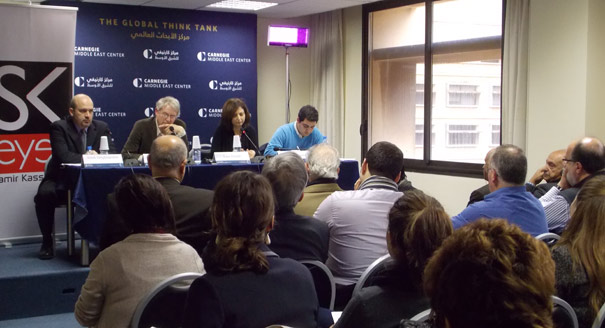Registration
You will receive an email confirming your registration.
Transnational jihadist organizations like al-Qaeda and the Islamic State make use of sophisticated propaganda tools to intimidate enemies, control societies, and recruit followers from around the globe.
In confronting this propaganda war, Twitter has been encouraged to shut down known Islamic State accounts and Youtube has taken to deleting gruesome execution and propaganda videos. Mainstream media establishments have been forced to weigh the necessity of reporting relevant information against the fear of spreading the radicals’ messages.
With every hostage murdered by the Islamic State, the debate about how the media should report the killings becomes more heated. Should the media refrain from republishing audiovisual material produced by terrorist groups? How can journalists ethically cover ongoing hostage crises without inadvertently reinforcing terrorist propaganda efforts?
To address these challenges, the Carnegie Middle East Center in partnership with the SKeyes Center for Media and Cultural Freedom hosted a panel discussion on Wednesday, February 18, from 4:00 to 6:00 p.m..
Babak Dehghanpisheh
Babak Dehghanpisheh is a senior correspondent at Thomson Reuters.
Lina Khatib
Lina Khatib is director of the Carnegie Middle East Center in Beirut. Previously, she was the co-founding head of the Program on Arab Reform and Democracy at Stanford University’s Center on Democracy, Development, and the Rule of Law.
Ayman Mhanna
Ayman Mhanna is executive director of the SKeyes Center for Media and Cultural Freedom at the Samir Kassir Foundation.
Jim Muir
Jim Muir is the Middle East correspondent for the BBC News.
Samia Nakhoul
Samia Nakhoul is the Middle East news editor at Thomson Reuters.
